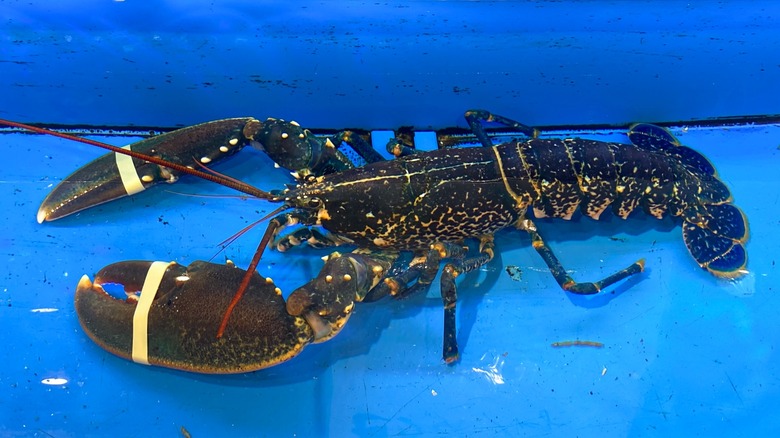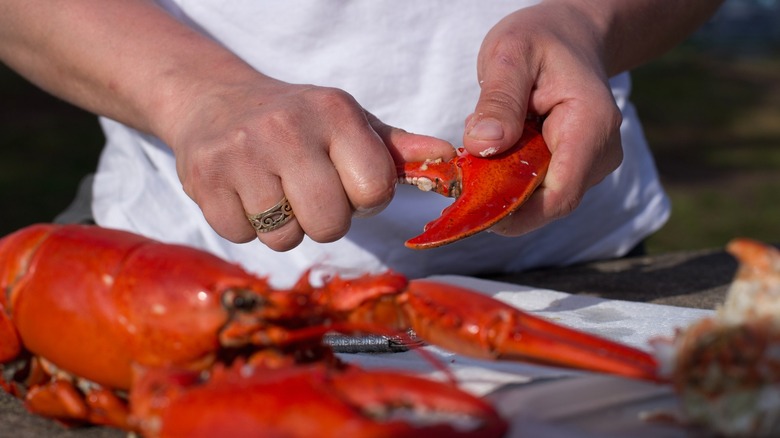When Buying Lobster, Bigger Isn't Always Better
If you want to get the freshest lobster possible, searching for one that's alive, well, and swimming in a clean tank is the only way to go. Yet, even then, the meat might not be as tender and juicy as you would hope — especially considering the price you pay for the fresh shellfish. One might think that, because you're already willing to shell out big bucks for quality seafood anyway, you might as well splurge and get your hands on the bulkiest creature in the tank. However, according to celebrated restaurateur Geoffrey Zakarian, bigger isn't necessarily better when it comes to lobster.
Lobster connoisseurs are likely already familiar with how large the crustacean is when at its best. Fortunately, The Takeout spoke with Zakarian during the New York City Wine & Food Festival, so the rest of us can be in the know as well. "If you're looking at a really good lobster, you're looking at 1 ¾-pound max," he said. "2 pounds — I don't know if you go to 2 pounds because it just gets tougher the bigger it gets." That's actually terrific news for those looking to save some coin. However, if you source a specific type of lobster, extra savings await.
The trick to getting cheaper lobster
Buying a smaller-sized lobster will not only get you a better product, but it obviously won't set you back as much per pound, which is how the shellfish is commonly priced. Geoffrey Zakarian also clued us into a way to get that succulent seafood at a discount. While purchasing a damaged animal is a mistake people make when buying lobster, there is one exception to that rule. "I usually order culls when I cook because they're a little less expensive," Zakarian said. "A cull is a lobster that has one arm, one claw."
One claw and one arm? What horrible misfortune befell the creature that landed it in such a gruesome predicament? According to Zakarian, one of its predators likely just wanted a nibble. "It probably got eaten," he explained. "They're less expensive because they're not as perfect." If you're trying to impress someone by cooking a gorgeous whole lobster, this certainly isn't ideal. However, if you're making lobster bisque, seafood pasta, lobster rolls, or another dish that requires you to break down the crustacean, no one will ever know the difference between a culled lobster and a whole one.

